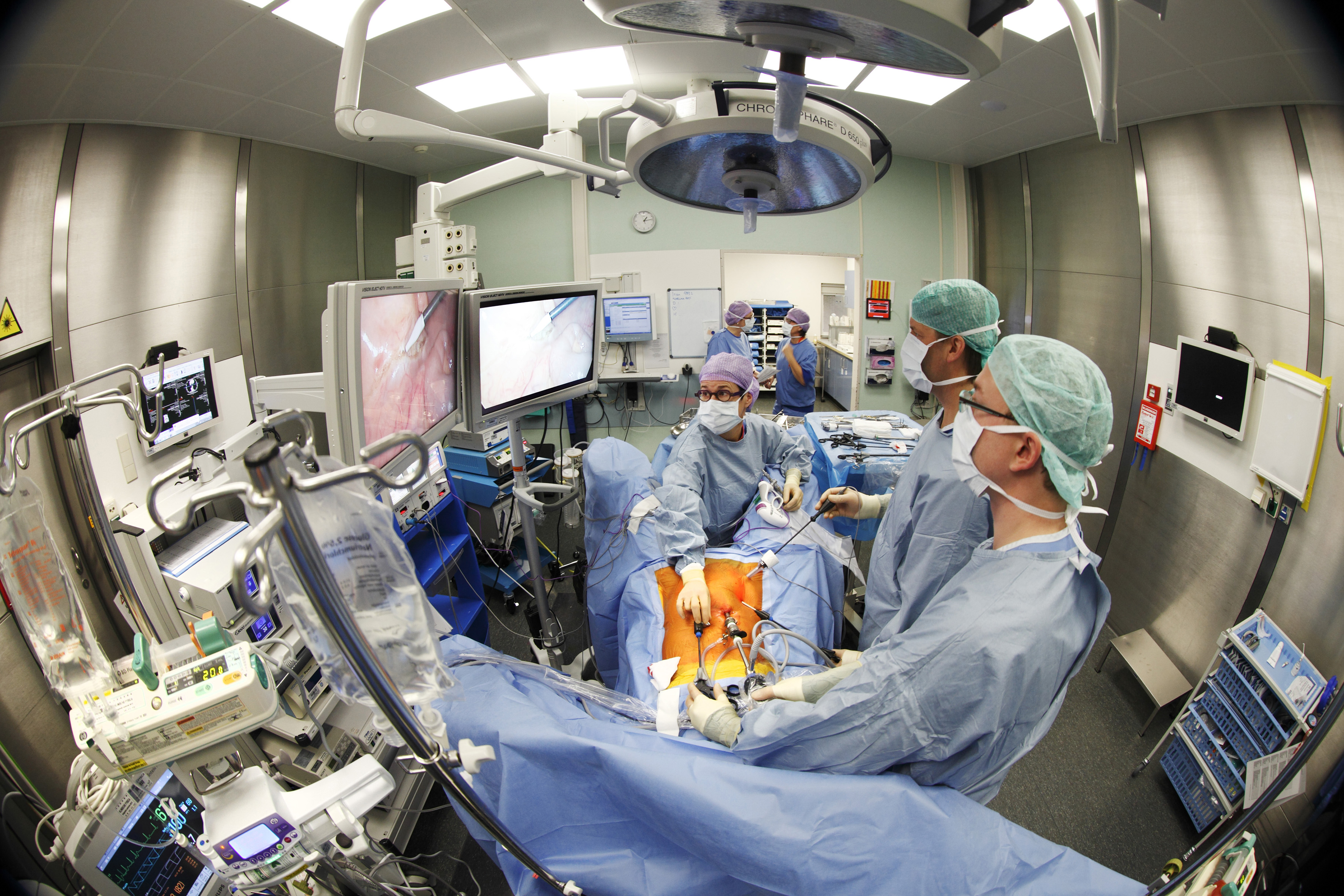People are the key to success in the operating theatre
Professor Jack Jakimowicz will be bidding farewell to the IDE faculty in November, where he has been professor of Safety in Healthcare since 2007. His association with TU Delft goes back much further, however. In the 1990s, he already worked with engineers and researchers on improving the instruments and safety of minimally invasive surgery as a surgeon at the Catharina Hospital in Eindhoven.
In 1990, Jack Jakimowicz was the first surgeon in the Netherlands to remove a gallbladder by means of so-called keyhole surgery: instead of having to make an incision about 15 centimetres long, only three or four small cuts were needed. These laparoscopic procedures – keyhole surgery in the abdominal cavity – have a number of advantages: smaller scars and quicker, less painful recovery. Add to that the economic benefit of shorter hospital stays and it’s not surprising that laparoscopy and other forms of minimally invasive surgery have become standard practice in many procedures.
Technology in the operating theatre
Jakimowicz was already working with flexible endoscopes, instruments for internal examination through existing orifices, in the 1970s and 1980s. ‘That probably made it easier for me to switch to image-driven surgery,’ he says. For many, the new technique was a major change, however: now surgeons had to control their instruments remotely, as it were, through a tube and closely follow what’s happening on a screen. More technology in the operating theatre also increased the need for technical expertise.
This is what gave rise to the close relationship between TU Delft and the Catharina Hospital. ‘Students and PhD candidates entered the operating theatre to observe how surgeons carried out their work. By completely immersing themselves in that, they saw exactly what could be improved,’ according to Jakimowicz. In the pioneering days of keyhole surgery that essentially meant the development of instruments. ‘Surgeons need instruments that fit well in their hands and that function as simply and efficiently as possible.’ Recently, one of Jakimowicz’s PhD students developed a vacuum grasper that substantially reduces damage to tissue and organs.
Healthcare is the largest industry
Gradually more attention has been devoted to training methods, improving ergonomic aspects and patient safety. ‘In recent decades, there has been a growing awareness that the use of technology in surgery has made it a kind of production process. What many people don’t realise is that the care sector is the world’s largest industry,’ Jakimowicz explains. An industry that is increasingly moving towards so-called high reliability organisations such as aviation, nuclear plants and drilling platforms, where processes are standardised and the culture of safety plays a key role.
‘In order for the entire process in the operating theatre to be carried out smoothly and safely, you need to carefully analyse and improve the various elements,’ Jakimowicz says. One of these elements is scheduling. ‘Scheduling too many operations creates unnecessary work pressure. Even something as simple as a tight schedule can lead to mistakes. Make sure there’s a checklist for certain procedures, as this will make people depend less on their memory.’ Then there’s the ergonomic aspect as well. ‘How can we teach people to protect themselves from working for years in a bad posture or using equipment that hasn’t been ergonomically designed, which can cause them severe injury or harm?’
The main point in that respect is to not constantly upgrade the technology. ‘There’s a tendency to keep adding functions, buttons and lights to every single device. At a certain point the complexity of the display will cause people to make mistakes.’ Jakimowicz likes to draw a comparison with the development of the smartphone. ‘Nowadays, your phone is your primary computer, your camera and so forth. Slowly but surely its essence is vanishing, namely to make phone calls with it.’
Excellent results
The research regarding these issues has led to many excellent publications and, in the past ten years alone, ten PhDs. It has also resulted in a training curriculum for future surgeons: the Laparoscopic Surgical Skills programme (LSS), which is organised at the Catharina Hospital. ‘We are now going to expand that project to India and South Korea and adapt it to local circumstances.’ Jakimowicz is proud of these results. ‘But the most important thing in all these years has been prioritising the quality of the specialist together with enthusiastic PhD students and graduates.’ Because people remain the key to the processes, he emphases. ‘We therefore have to ensure that they’re prepared in such a way that they can function optimally in these process-driven procedures.’
According to Jakimowicz, it is precisely the students and researchers at IDE who are aware of this. ‘They know how to handle the technology and the interface, not to mention the people,’ he says. ‘It’s fascinating to see that young engineers are showing an interest in developing VR simulations to train specialists or to validate new tools. To see them enthusiastically teach people how to safely use a new instrument, to see them opt for interaction. That’s a completely different kind of engineer than the one who will work in aviation or to design bridges. That’s why I’m so attached to IDE.’
